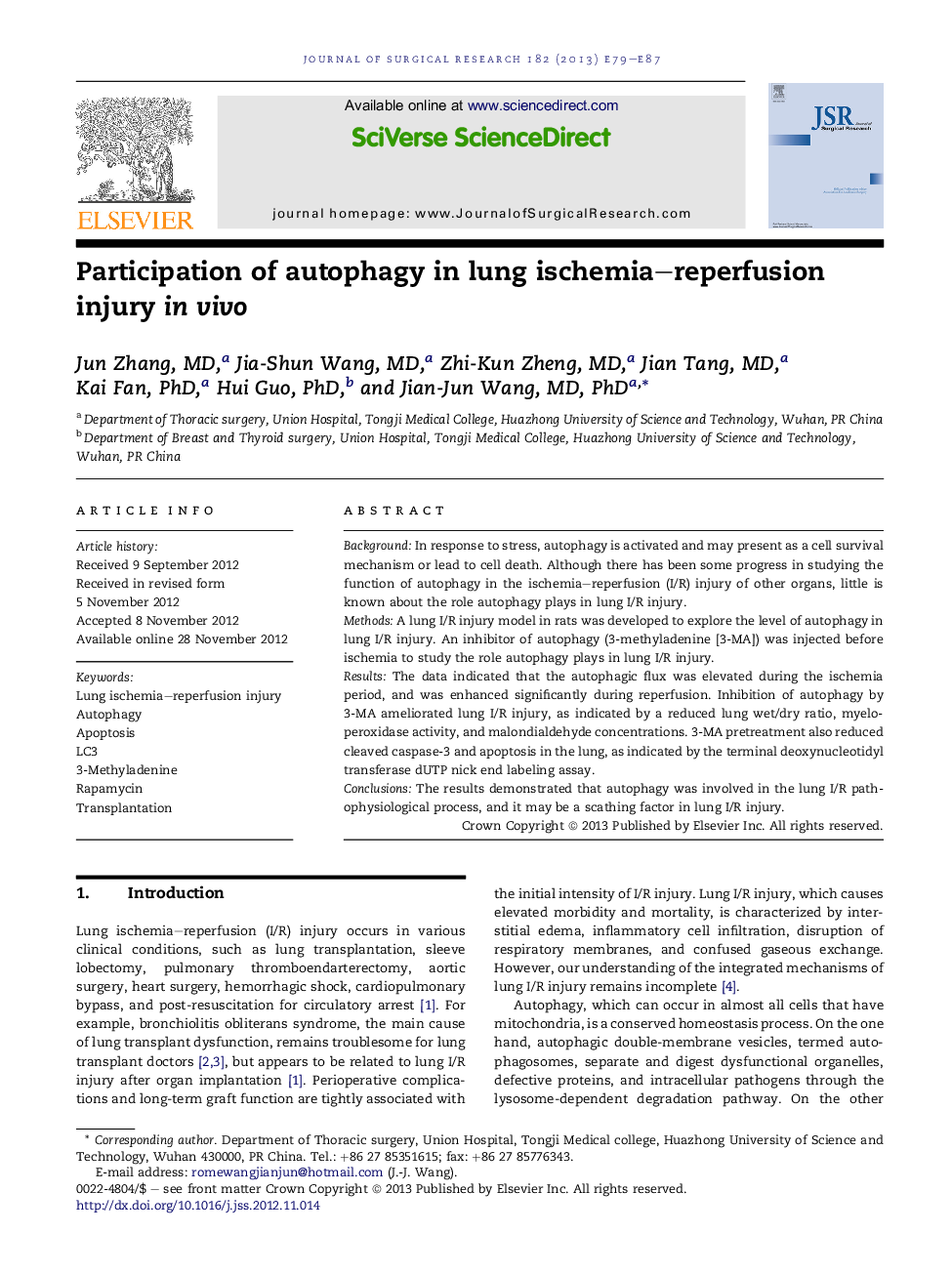| Article ID | Journal | Published Year | Pages | File Type |
|---|---|---|---|---|
| 4301035 | Journal of Surgical Research | 2013 | 9 Pages |
BackgroundIn response to stress, autophagy is activated and may present as a cell survival mechanism or lead to cell death. Although there has been some progress in studying the function of autophagy in the ischemia–reperfusion (I/R) injury of other organs, little is known about the role autophagy plays in lung I/R injury.MethodsA lung I/R injury model in rats was developed to explore the level of autophagy in lung I/R injury. An inhibitor of autophagy (3-methyladenine [3-MA]) was injected before ischemia to study the role autophagy plays in lung I/R injury.ResultsThe data indicated that the autophagic flux was elevated during the ischemia period, and was enhanced significantly during reperfusion. Inhibition of autophagy by 3-MA ameliorated lung I/R injury, as indicated by a reduced lung wet/dry ratio, myeloperoxidase activity, and malondialdehyde concentrations. 3-MA pretreatment also reduced cleaved caspase-3 and apoptosis in the lung, as indicated by the terminal deoxynucleotidyl transferase dUTP nick end labeling assay.ConclusionsThe results demonstrated that autophagy was involved in the lung I/R pathophysiological process, and it may be a scathing factor in lung I/R injury.
